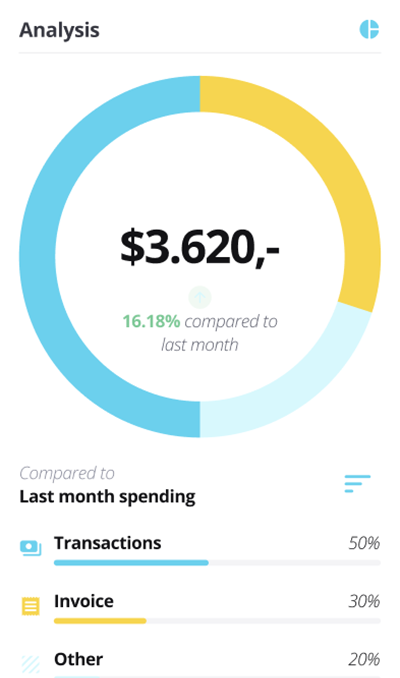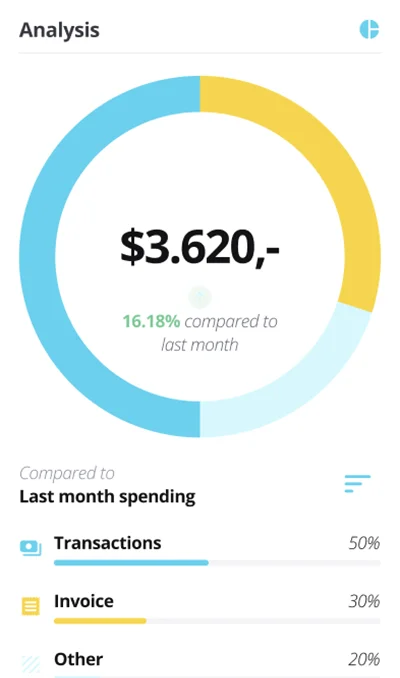Fractional Controller Services
The first step to proper finance reporting
and oversight is hiring a controller.
The link between a CFO and the accounting department is the controller,
the person responsible for financial reporting, budgeting, cash flow management, and more.
Every thriving business recognizes the importance of meticulous financial oversight. But, not every enterprise needs or can allocate resources for a full-time controller. Herein lies the brilliance of our Fractional Controller services — providing the precision and expertise of a dedicated controller without the commitment of a full-time salary.
Fully Accountable is an elite team of financial professionals passionate about business growth. With vast experience spanning numerous sectors, our fractional controller services promise to elevate your business’s financial management to unparalleled heights.
Learn more about our process— Watch Our Demo
What Does a Fractional Controller Do?
A fractional controller provides many of the same services and responsibilities as a full-time controller but on a part-time oras-needed basis. This model offers businesses access to high-level financial expertise without the need to hire a full-time position,which can be particularly useful for small to medium-sized businesses or startups with limited resources.
Here’s a Breakdown of what a Fractional Controller Typically Does:

Financial Reporting: They prepare and present detailed, accurate financial statements that give stakeholders a clear picture of the company’s financial health. This includes balance sheets, income statements, and cash flow statements.
Budgeting and Forecasting: The fractional controller assists in setting budgets, monitoring actual results against these budgets, and adjusting as necessary. They also engage in financial forecasting to predict future financial outcomes.
Internal Controls: They establish, review, and enforce internal controls to ensure the accuracy and reliability of financial data, and to safeguard the company’s assets. This also helps in preventing fraud.
Cash Flow Management: One of their crucial roles is to monitor and manage the company’s cash flow, ensuring that the business has enough liquidity to meet its obligations.
Financial Process Improvements: They’ll often identify areas where financial processes can be streamlined or improved, implementing changes that can result in cost savings or increased efficiency.
Accounting System Management: They oversee and optimize the accounting system, ensuring that it’s up-to-date with the latest practices and technologies. This might also involve selecting and implementing new accounting software or tools.
Budgeting and Forecasting: While they typically don’t replace a tax professional or CPA, a fractional controller ensures that the company’s financial activities are compliant with relevant regulations and that necessary financial data is ready for tax preparations.
Liaison with External Auditors: If the company undergoes an external audit, the fractional controller will often be the primary point of contact, ensuring that auditors have the information they need.
Strategic Planning: In collaboration with other executives or decision-makers, they help in shaping the company’s financial strategy, providing insights that can guide business decisions.
Team Management and Training: If the company has an in-house accounting or finance team, the fractional controller might oversee this team, providing training and guidance as necessary.

In essence, a fractional controller is an integral financial leader for businesses that might not yet require or can’t afford a full-time controller. They bridge the gap, ensuring that the company’s financial operations run smoothly and efficiently.
Difference Between Controller and Fractional Controller
The primary difference between a controller and a fractional controller lies in the scope of their engagement and often the size and needs of the companies they serve. Let’s dive into the distinctions:

Engagement Duration and Frequency
Controller: Typically a full-time, salaried employee who oversees the accounting functions of a company on a daily basis.
Fractional Controller: Engaged on a part-time or as-needed basis. They provide controller services to businesses that may not require or cannot afford a full-time controller. Often, they serve multiple companies simultaneously.

Cost
Controller: As full-time employees, they earn a consistent salary with benefits. According to Glassdoor, a corporate controller earns a $220,000 salary.
Fractional Controller: They are often more cost-effective for businesses with tighter budgets or less consistent needs. Companies pay only for the time or services they require, which can be adjusted based on business needs. Costs will vary but are unlikely to surpass the average yearly salary of a controller.

Flexibility
Controller: Their role and hours are typically fixed, given they’re full-time employees.
Fractional Controller: They are often more cost-effective for businesses with tighter budgets or less consistent needs. Companies pay only for the time or services they require, which can be adjusted based on business needs. Costs will vary but are unlikely to surpass the average yearly salary of a controller.

Scope of Work
Controller: Handles the comprehensive accounting needs of one company. They are deeply entrenched in the company’s financial operations.
Fractional Controller: While they can offer the same services as a full-time controller, their role might be more focused on specific projects or oversight functions, given their part-time or periodic engagement.

Business Size and Needs
Controller: Often employed by medium to large enterprises with complex accounting needs that justify a full-time position.
Fractional Controller: Ideal for startups, small businesses, or companies with seasonal fluctuations that don’t necessitate a full-time controller but still require expert oversight.

Flexibility
Controller: Their role and hours are typically fixed, given they’re full-time employees.
Fractional Controller: They are often more cost-effective for businesses with tighter budgets or less consistent needs. Companies pay only for the time or services they require, which can be adjusted based on business needs. Costs will vary but are unlikely to surpass the average yearly salary of a controller.

Advantages of a Fractional Controller
Experience top-tier financial management without the burden of a full-time expense. Pay only for the time and expertise you utilize. Dive deep into the nuances of your finances, ensuring every dollar is accounted for and maximized.
Recognizing that each business has its unique challenges, our solutions are crafted to resonate with your specific needs. Our services are tailored to complement businesses of all sizes, be it a budding startup or a market leader.
Embark on Your Financial Journey
Ready to redefine your business’s financial management? Our plug-and-play outsourced accounting services can provide you with the expertise to organize your finances, make better financial decisions, and get a more accurate outlook of where your business is headed. From financial reporting to budget oversight, a fractional controller is an intermediary between the accounting department and the CFO, bridging the gap between the people who crunch the numbers and the person who uses those numbers to make high-level final decisions.
Whether you’re in need of an interim fractional controller or are looking for someone to temporarily step in to get your finances into shape, Fully Accountable can help you with your fractional controller needs.
With Fully Accountable, you’re not just hiring a service; you’re investing in a partnership. Together, let’s steer your business towards unparalleled financial success. For an obligation-free consultation or to delve deeper, schedule a call
or contact us.


